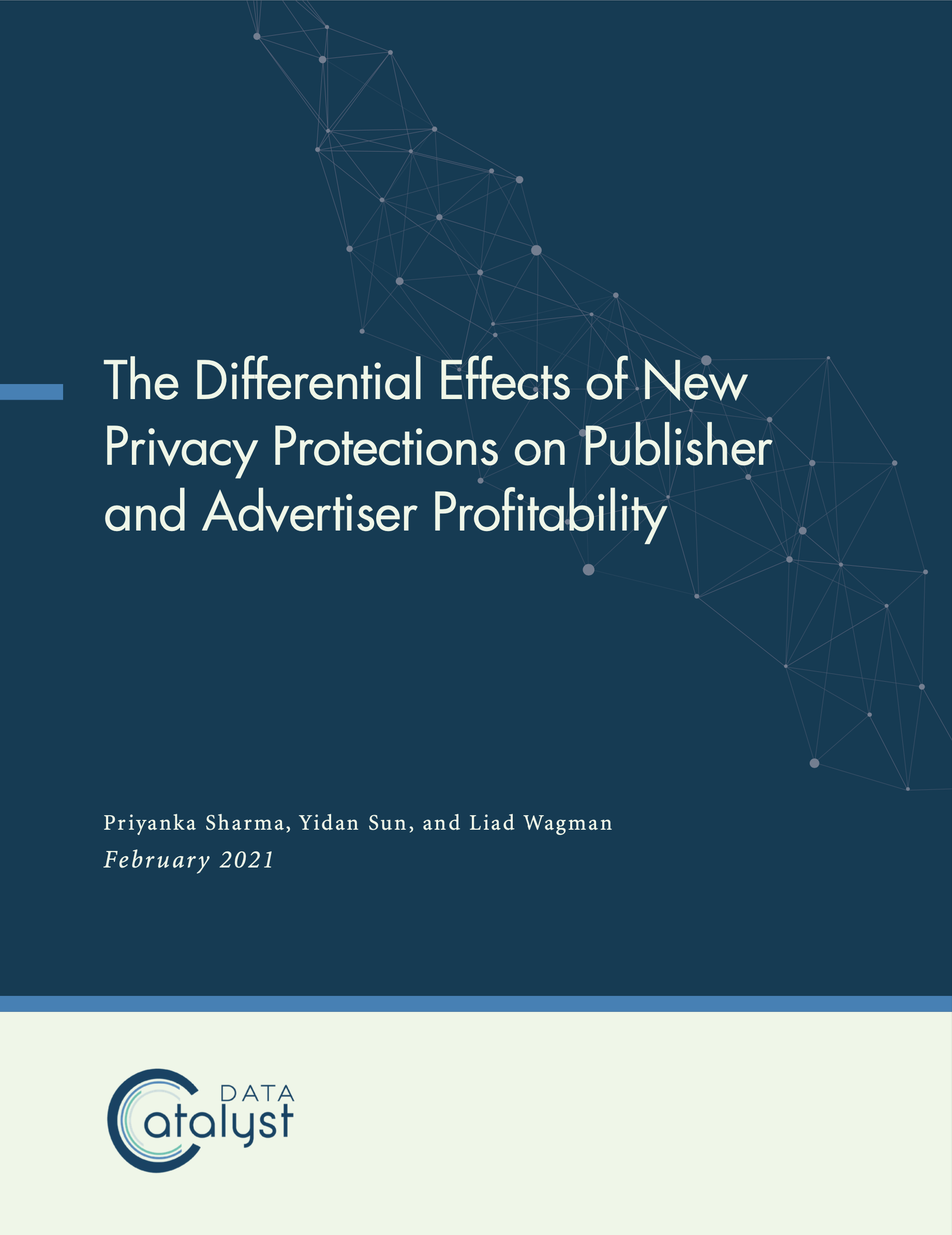
Message in a Model: Stricter Data Regulation Hurts Small Publishers and Advertisers
February 2021
Publishers of online content, such as streamers (Twitch, Youtube, Facebook, etc.), app developers (Spotify, Pandora, Candy Crush, etc.), and other content providers (The New York Times, The Washington Post, Forbes, etc.), often monetize their offerings through digital advertisements (“ads”). The process of bringing in ads is largely driven by ad networks who connect a large number of advertisers to the audiences of the publishers’ content. Stricter rules governing the use of such data could reduce ad networks’ ability to efficiently match ads with users, which may in turn diminish the ability of the publishers to monetize their free content offerings.
This Technical Report models the effects of stricter data regulation rules on publishers and advertisers of various sizes who interact with each other in complex ways that simulate actual markets. The results show that data regulations can have negative effects on the revenues of publishers and advertisers. More specifically, the results suggest that it is the smallest publishers and advertisers who incur the largest percentage profit decreases once a stricter data ruleset is imposed. In addition, the authors demonstrate that a relative increase in the aggregate market size of large publishers – for instance, due to a collective of publishers banding together as an alliance – may have detrimental effects on small publishers who are not part of the alliance.
These results have implications for not only publisher and advertisers complying with general data regulations such as the EU’s General Data Protection Regulation (GDPR) and the California Consumer Privacy Act (CCPA), but also more narrow laws and policies that indirectly result in data regulation, such as Maryland’s new tax on digital advertising revenue.

The Differential Effects of New Privacy Protections on Publisher and Advertiser Profitability
Priyanka Sharma, Yidan Sun, and Liad Wagman
February 2021